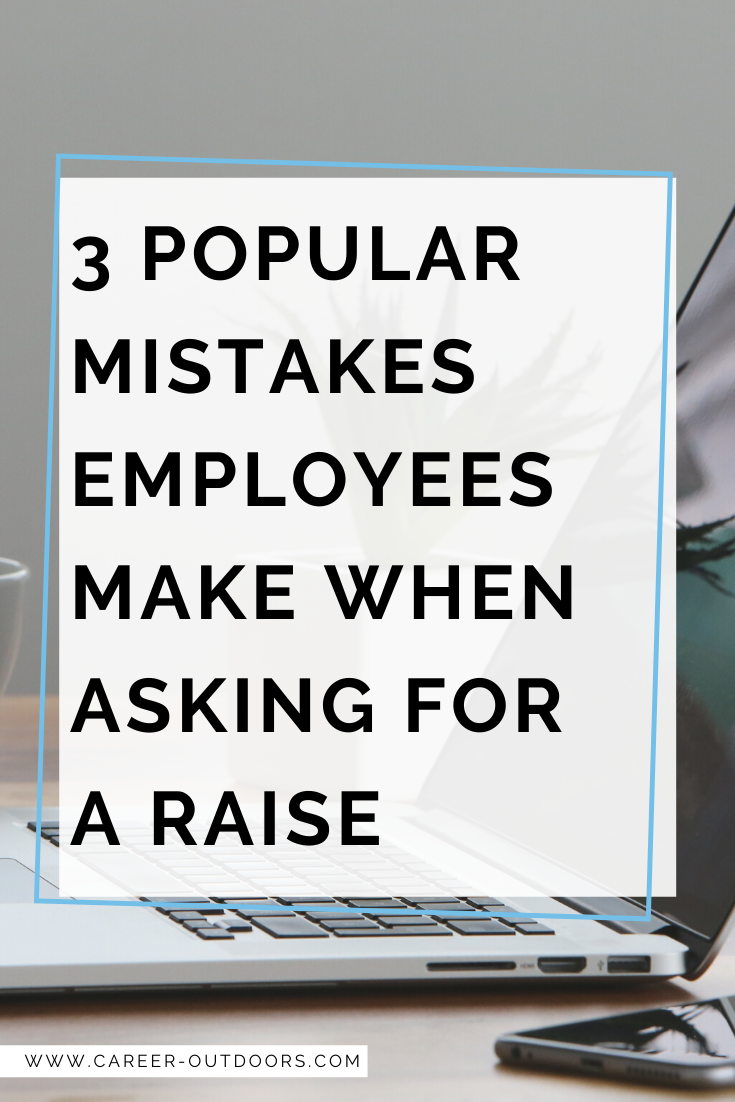3 Popular Mistakes Employees Make When Asking For a Raise
So, you’re ready to ask for a raise but have no idea how to begin the conversation? Don’t worry — I’ve got you covered.
Although discussing compensation can be nerve-wracking at first, asking for a raise is a normal part of your career experience. You’ll likely discuss compensation details dozens of times with various employers throughout your career. So, it’s important to understand how to navigate these conversations (and the sooner, the better)!
Second, because these conversations are so normal, they are expected. That’s right — your employer expects you to ask for a raise at some point!
Compensation conversations typically happen before you accept a job offer (like base salary negotiations), alongside evaluations, or during yearly check-ins. You can expect to discuss compensation and benefits with your employer each year.
With that said, sometimes these conversations happen more frequently. For example, if your company has undergone lay-offs and you’re suddenly taking on the work of three people, it might be time to discuss how you can be compensated for this extra work.
So, to make sure that your raise conversation goes smoothly, I’ve rounded up the most common mistakes that employees make when asking for a raise.
Mistake #1: You’re focusing on other people.
Center the conversation around the value that you’re providing to the company. This isn’t about your colleagues — why do YOU deserve a raise?
Don’t say: “I’ve been working here for two years more than Janet and she’s being paid more. I need a raise!”
While openly discussing salary with your colleagues can be beneficial, your coworkers salary is not justification for why YOU deserve more money.
Plus, comparing salaries can be like comparing apples to oranges. Aside from differences in job descriptions, you and your coworkers have different skill sets, experiences, educational backgrounds, and so much more that could account for differences in compensation levels.
Instead, focus on yourself!
Remind your employer of the value that you are bringing to the table, day in and day out. This conversation is about how awesome YOU are! Quantify your accomplishments and remind them of how you’ve gone the extra mile recently. There’s no need to mention your colleagues.
(On the other hand, if you believe that you are being paid unfairly, especially if you belong to a historically excluded group, and that bias is playing a role in your compensation, that’s a different story. In that case, additional steps need to be taken, both ethically and legally, as you compare salary structures across the company.)
Mistake #2: You sprung the conversation on your boss.
Even if your supervisor has an open-door policy, it’s best to set up a formal meeting to ask for a raise. You want to be as transparent as possible. Everyone has a different personal money story, so springing this conversation on someone could be alarming. A lot of folks like to feel well-prepared to talk about money.
Instead, ask to set up a meeting to discuss compensation.
I prefer sending off a simple email.
“Hi ______. I’m approaching my one-year anniversary with [company] and would like to set up a time to discuss my compensation and collaborate on next year’s goals. Please let me know your availability over the next [timeframe]. Thank you!”
Some organizations require (or prefer) HR representatives to be present during these conversations. A straightforward email will allow your supervisor to prepare for the conversation and ask others to join in, if needed.
Additionally, your supervisor may not have the final say on your compensation. Especially in large organizations, discussing salary with your supervisor is just the beginning of the process. From there, they will advocate for your salary increase and may have conversations with their boss, the leadership team, and/or human resources.
Mistake #3: You discussed how you’re doing a good job at work…
You’ve been crushing it at work lately and deserve that raise — you don’t have to convince me! But, you may have to convince someone else. This is the easiest mistake to make when discussing compensation. You don’t want to only focus on the fact that you’re doing a good job because you are expected to do a good job at work — that’s why they hired you.
Instead, bring numbers to the table and remind your boss of times that you went above and beyond.
Quantify your success — whether you’ve increased profits, reached more community members, or exceeded company goals; be ready with numbers!
For accomplishments that are tougher to quantify, tell a story about your impact.
You want to remind your supervisor that you’re consistently going the extra mile. If you’ve taken on additional projects or responsibilities over the past year, that is a great reason to receive a compensation increase. Don’t be humble!
If you’re still feeling nervous about asking for a raise, remember that no one will care more about your career and finances than YOU! You can either be your own worst critic, or your best advocate. Be an advocate; it will help other people advocate for you, too!
Looking for more career resources? Subscribe to the Career Outdoors email newsletter where we share exclusive career advice, hot job opportunities, and industry news every Tuesday!
